Questões sobre Interpretação de Texto
Lista completa de Questões sobre Interpretação de Texto para resolução totalmente grátis. Selecione os assuntos no filtro de questões e comece a resolver exercícios.
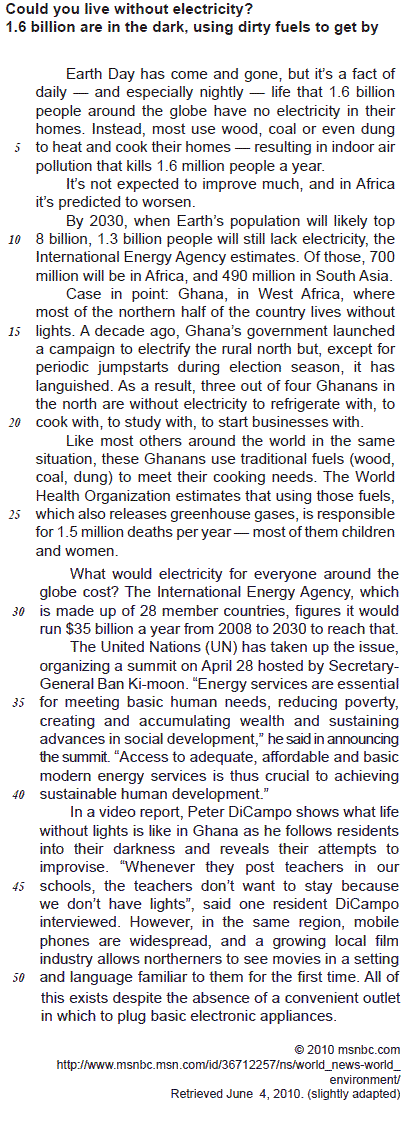
The expression in boldface introduces the idea of consequence in
- A.
Instead, most use wood, coal or even dung to heat and cook their homes (lines 4-5)
- B.
but, except for periodic jumpstarts during election season, (lines 16-17)
- C.
Access to adequate, affordable and basic modern energy services is thus crucial to achieving sustainable human development. (lines 38-40)
- D.
However, in the same region, mobile phones are widespread, (lines 47-48)
- E.
All of this exists despite the absence of a convenient outlet in which to plug basic electronic appliances. (lines 50-52)
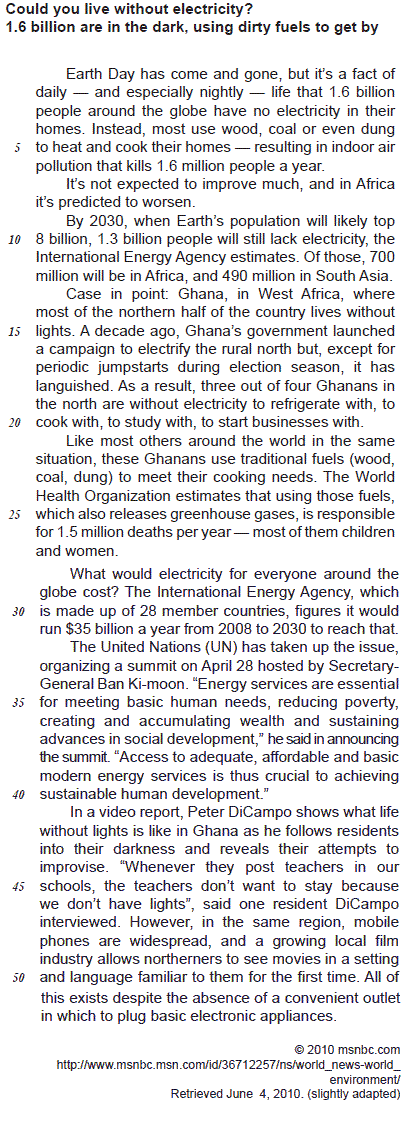
Based on the meanings in the text, the two items are synonymous in
- A.
... worsen. (line 8) improve.
- B.
... made up of... (line 30) composed of.
- C.
figures... (line 30) numbers.
- D.
has taken up... (line 32) has discarded.
- E.
affordable... (line 38) expensive.
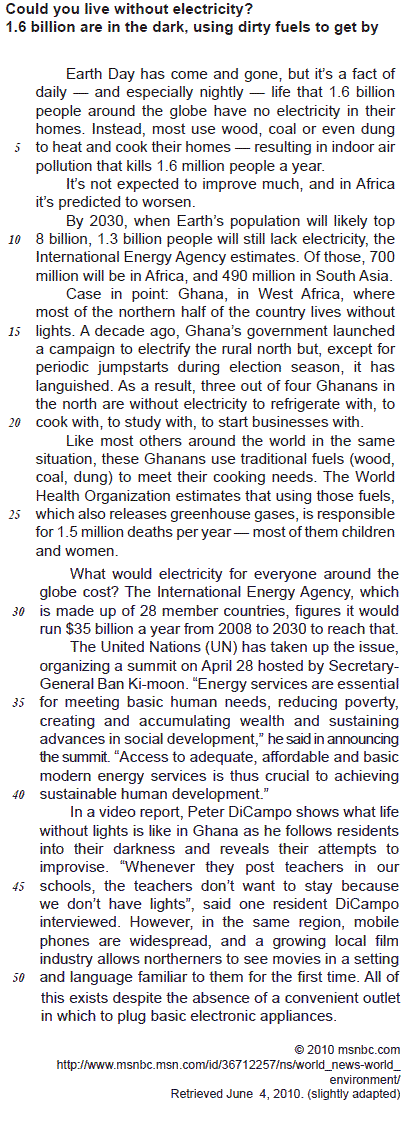
In paragraph 7 (lines 32-40), Ban Ki-moon states that energy services
- A.
cannot aid nations to overcome difficulties in human development.
- B.
can play a fundamental role in the fulfillment of basic human needs.
- C.
are unavailable in poor countries with sustained social development.
- D.
will have no impact on promoting social advances or on reducing poverty.
- E.
will help poor nations accumulate wealth and produce electrical appliances.
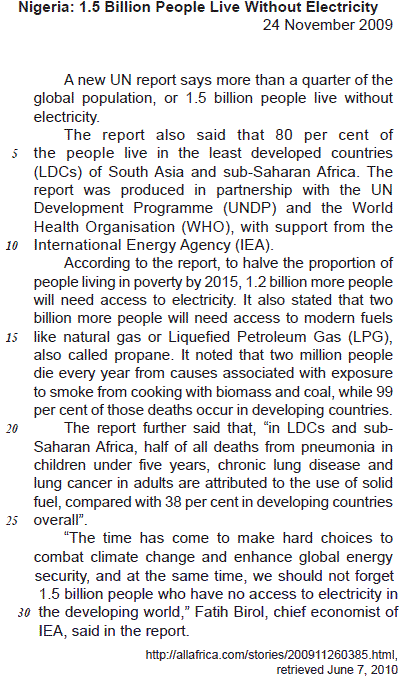
Both Text I and Text II
- A.
report on the high death rates in Africa and Asia resulting from the use of electricity.
- B.
condemn African countries that are trying to offer their populations healthy living conditions.
- C.
blame the UN for the difficulties Africans have faced due to the inefficient electricity provisions in the continent.
- D.
announce that the use of fuels such as natural gas and propane reduced the death rates in developing countries.
- E.
argue for the implementation of widespread access to electricity in developing nations so as to reduce poverty.
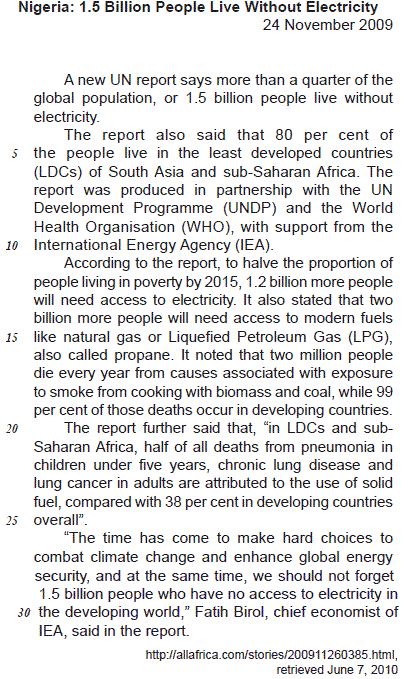
Considering some of the numerical figures in Text II,
- A.
... 1.5 billion ... (line 2) refers to more than 25% of the world population who survive without access to electricity.
- B.
... 80 per cent ... (line 4) refers to the share of the total world population living in the least developed countries.
- C.
1.2 billion ... (line 12) refers to the amount of global population that will certainly live without electricity in 2015.
- D.
... 99 per cent ... (lines 18-19) refers to the percentage of deaths resulting from smoking cigarettes in developing countries.
- E.
... 38 per cent ... (line 24) refers to the amount of adults who die of lung disease in the sub-Saharan Africa.
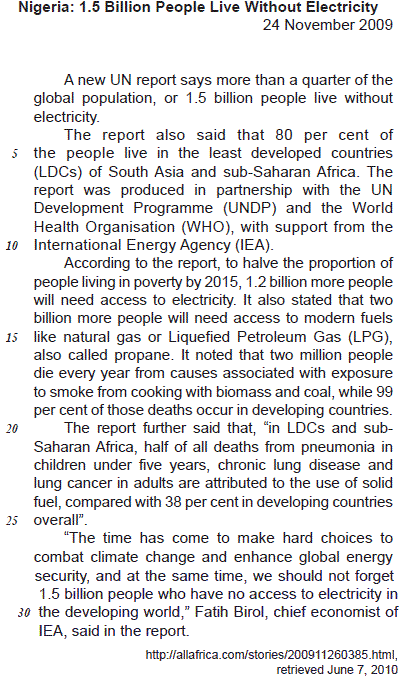
In It also stated that two billion more people will need access to modern fuels (lines 13-14 Text II) , it refers to
- A.
... report, (line 11)
- B.
... proportion ... (line 11)
- C.
... poverty ... (line 12)
- D.
... access ... (line 13)
- E.
... electricity. (line 13)
Língua Inglesa - Interpretação de Texto - Centro de Seleção e de Promoção de Eventos UnB (CESPE) - 2010
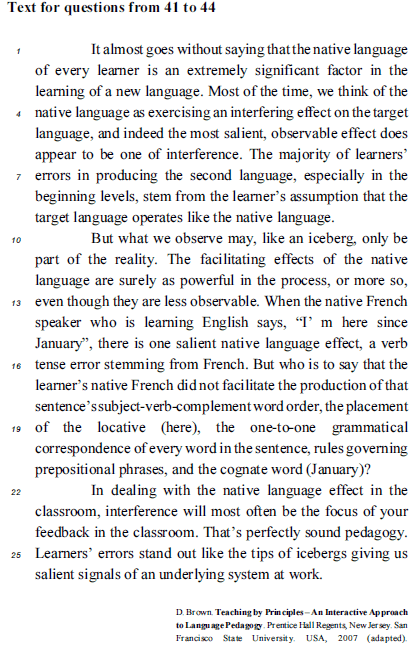
From the text, it can inferred that
- A.
second language learners can be victims of their own native language.
- B.
the more you learn a foreign language the more interference you experience.
- C.
interference is part of a natural process while learning a foreign language.
- D.
native language influence is a handicap against learners of a second language.
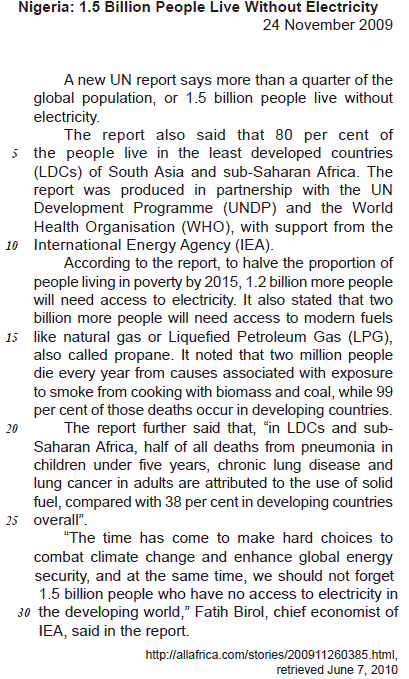
According to Fatih Birol in Paragraph 5 (lines 26-31 Text II), it
- A.
will be impossible to meet the large demand for energy in the developing world.
- B.
will be imperative in the next century to find solutions for energy and climate problems around the globe.
- C.
is useless to combat changes in weather and promote wide access to energy nowadays.
- D.
is time to find ways to fight climate change, improve energy security and expand the access to electricity.
- E.
may be necessary to take violent actions against the unfair distribution of energy in developing nations.
Língua Inglesa - Interpretação de Texto - Centro de Seleção e de Promoção de Eventos UnB (CESPE) - 2010
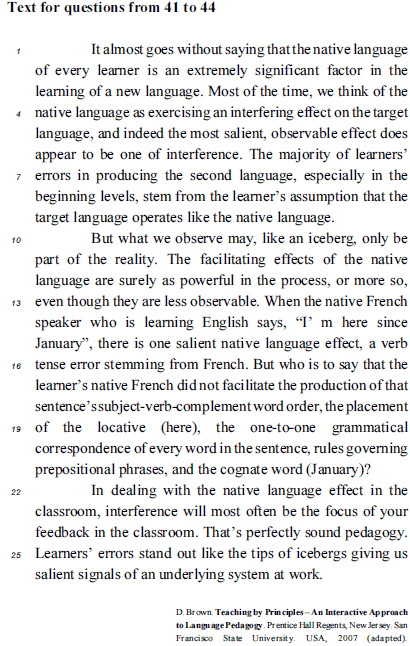
Based on the text, judge the items below.
- A.
Most foreign language learners make unusual mistakes.
- B.
Second language interference can be particularly found at the beginners level.
- C.
French and English are structurally different.
- D.
Icebergs give you tips on how to teach a foreign language.
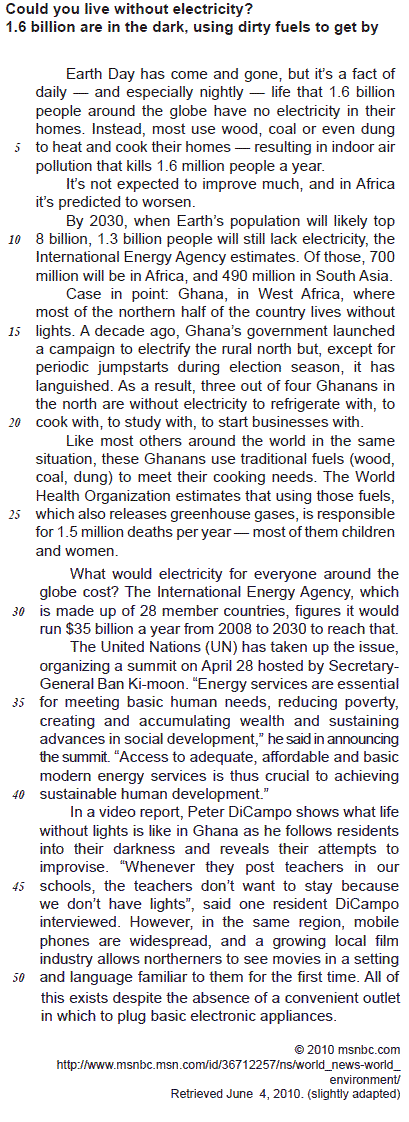
In By 2030, when Earths population will likely top 8 billion, (lines 9-10), will likely means the same as
- A.
will certainly.
- B.
will similarly.
- C.
will probably.
- D.
will eventually.
- E.
will considerably.


